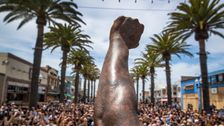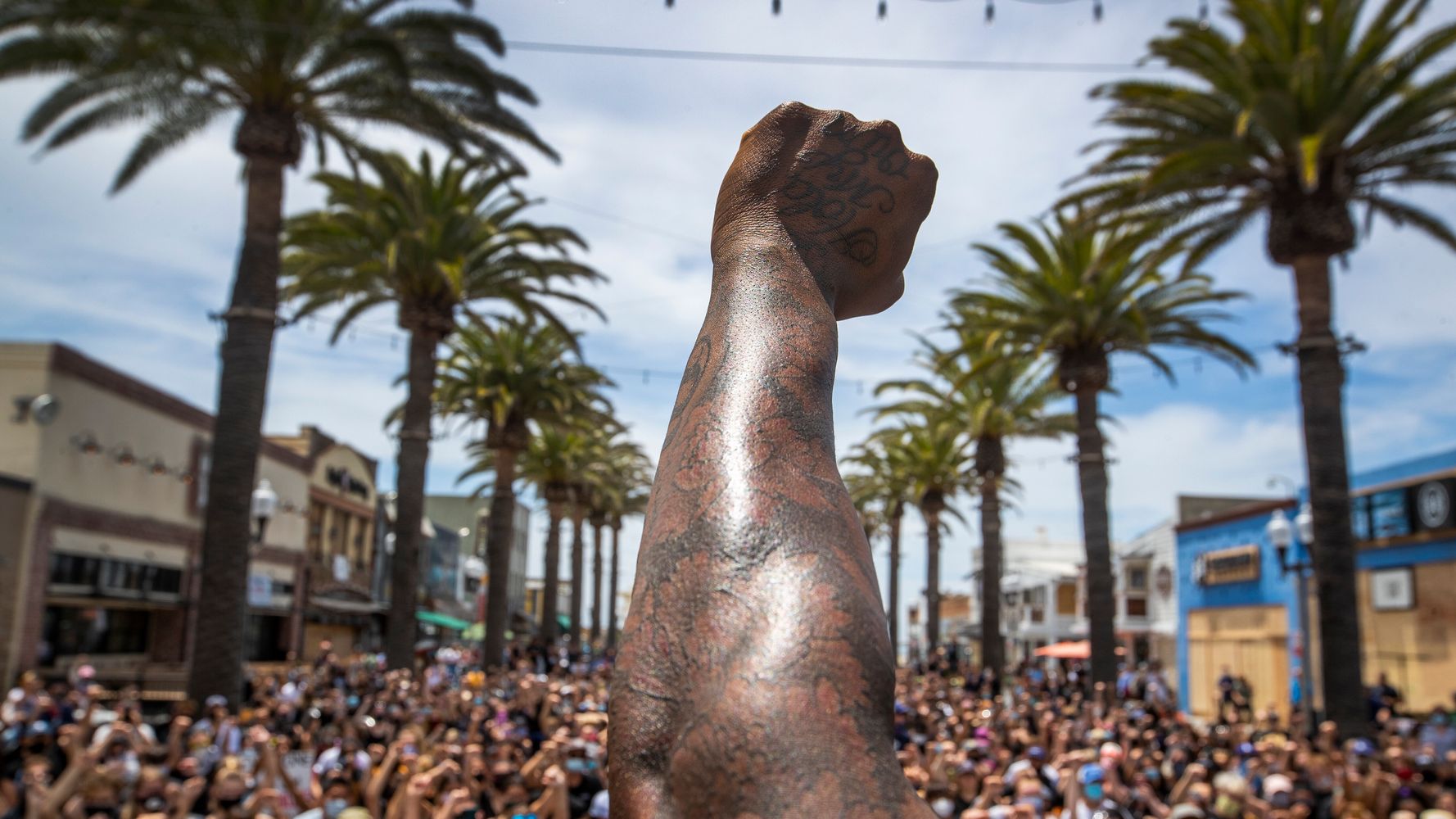[ad_1]

Nearly two months after the COVID-19 crisis forced organizers of Los Angeles’ LGBTQ Pride festival to go digital-only, plans for a reimagined in-person event are back on.
Christopher Street West, which produces L.A. Pride, announced Wednesday that the group would stage a “solidarity protest march,” much like the demonstrations against racial inequality and police brutality taking place now nationwide.
Intended as a “response to racial injustice, systemic racism and all forms of oppression,” the event will be held June 14, the date previously reserved for the traditional Pride parade. Though specifics are scarce, participants will be expected to wear masks or other face coverings and take other appropriate social distancing measures.
“Fifty years ago Christopher Street West took to the streets of Hollywood Blvd in order to peacefully protest against police brutality and oppression,” Estevan Montemayor, who is the organization’s president, said in a statement. “It is our moral imperative to honor the legacy of Marsha P. Johnson and Sylvia Rivera, who bravely led the Stonewall uprising, by standing in solidarity with the Black community against systemic racism and joining the fight for meaningful and long-lasting reform.”
On the event’s Facebook page, organizers stressed that the event will be a peaceful assembly.
Wednesday’s surprise announcement came just two days into a Pride Month that feels considerably less celebratory than in years past. As concerns about the spread of the coronavirus grew, Pride organizers in New York, San Francisco and other cities nationwide canceled all parades and in-person festivities. Meanwhile, theaters, clubs and other nightlife venues that also host LGBTQ-inclusive events throughout June have shuttered temporarily and, in some cases, permanently.
Still, many LGBTQ rights advocates said they have used their time in quarantine to reassess how they plan to acknowledge Pride ― criticized in recent years for becoming too commercialized and corporation-driven ― moving forward. The modern LGBTQ rights movement began symbolically with the 1969 Stonewall uprising, and some now say they’ve been inspired by the Black Lives Matter movement to focus more on protesting instead of partying.
“Nowadays, we’ve been given a seat at the table of the powerful, and in our efforts not to lose that seat, we’re often reluctant to challenge it,” New York drag icon Lady Bunny told HuffPost. “Basically, we need more fight and fewer weak hashtags and glitzy galas filled with straight celebs.”
Calling all HuffPost superfans!
Sign up for membership to become a founding member and help shape HuffPost’s next chapter
[ad_2]
Source link

